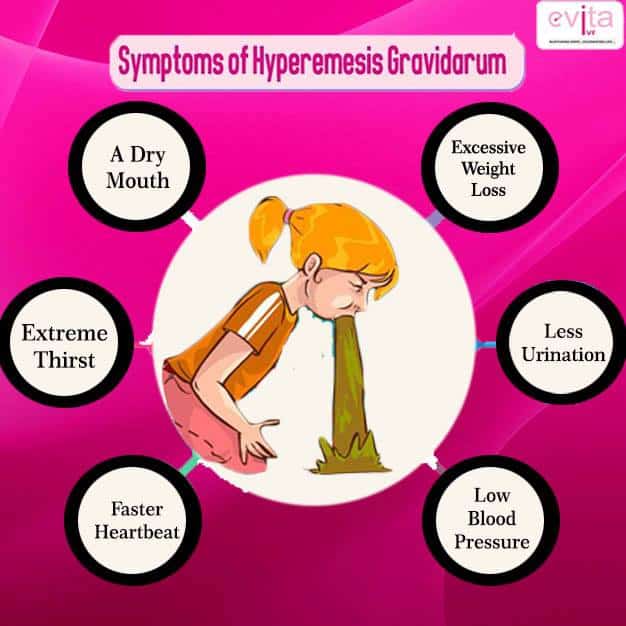Hyperemesis Gravidarum is a condition of severe nausea and vomiting during pregnancy. This condition is considered an extreme case of morning sickness and affects more than 60,000 pregnant women. Morning sickness, itself, affects about 70-80% of pregnant women for about twelve weeks then resolves. Whereas Hyperemesis Gravidarum will last longer (possibly the entire pregnancy). But there are a few ways to help distinguish the two.
When trying to distinguish the two, morning sickness and Hyperemesis Gravidarum have some differences and similarities. Morning sickness for instance has nausea sometimes accompanied by vomiting. Whereas Hyperemesis Gravidarum has nausea accompanied by severe vomiting. Also morning sickness nausea will subside at 12 weeks or soon after as stated above but with Hyperemesis Gravidarum the nausea does not subside. Also with morning sickness vomiting will not cause severe dehydration like Hyperemesis Gravidarum does. Lastly, morning sickness vomit will allow you to keep some food down unlike Hyperemesis Gravidarum where no food will be kept down.
Cause and Symptoms
There is no exact cause of Hyperemesis Gravidarum. However, most believe it is due to the increase in hormone levels of estrogen and human chorionic gonadotropin. Symptoms to be expected include:
- Severe nausea
- Vomiting
- Dry Skin
- Constipation
- Weight Loss
- Decrease urine
- Dehydration
- Headaches
- Low blood pressure
- Depression
- Fatigue
- Rapid Heart Rate
- Confusion
Diagnosing and Treatment
To diagnosis this condition, a complete blood count will need to be completed. Tests and other exams may be done as well. These will be for electrolytes, urine ketones, and weight loss.
Treatment might include hospitalization and intravenous fluids. Also a nasogastric tube, percutaneous endoscopic gastrostomy, and medications (based on the severity) may be some options as well. Others may include; bed rest, acupressure,and hypnosis. To help your overall symptoms try smaller meals more frequently. Also try dry bland food, increasing your fluids, drink seltzer water, ginger ale, or smoothies. Try avoiding triggers that cause increase nausea and vomiting. This include perfumes, scented bath washes, toothpaste, bright or blinking lights, loud noises/sounds, tight clothing, and riding in cars. Though all of these can’t necessarily be avoided, you can always reduce the amount of time doing some of these activities or the amount of product being used. This should help ease some symptoms and nausea.
While severe nausea and vomiting is not the ideal situation while pregnant, there are plenty of options to get you back on top!

